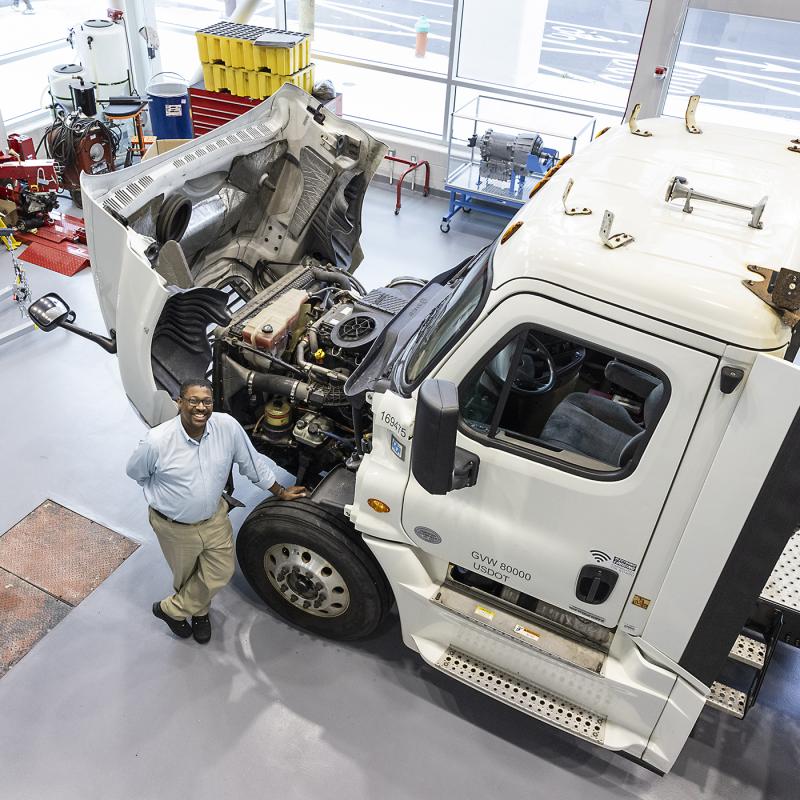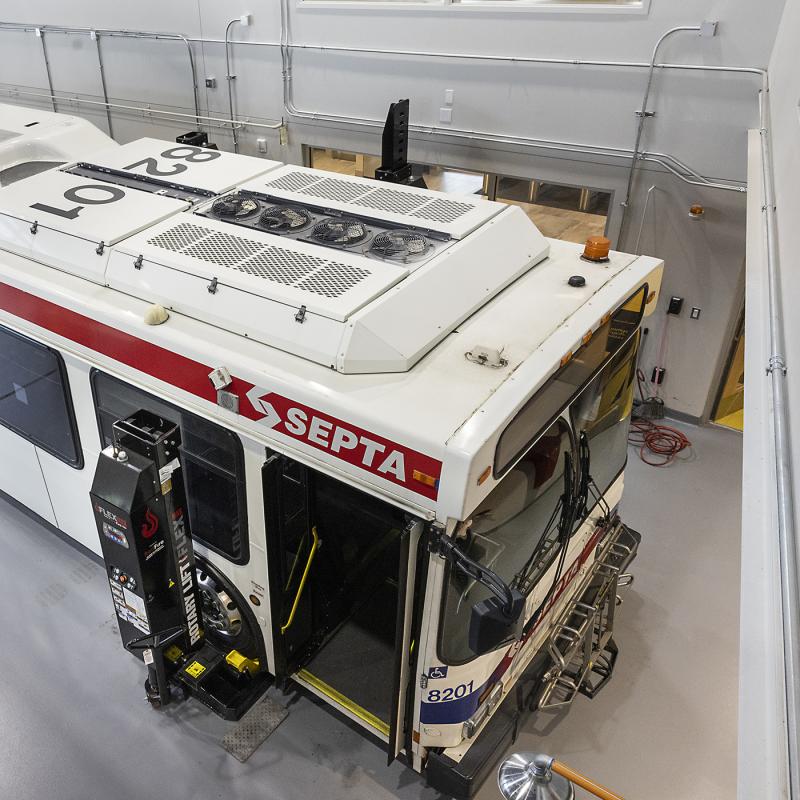-
Program Duration: 2 Year Program
-
Degree Type: Associate in Applied Science (A.A.S.)
-
Total Credit Hours: 61

About This Program
From the food we eat to the clothes we wear to the products we buy; trucks are used to bring us the majority of the supplies that keep our society running. With the United Stated Bureau of Labor statistics predicting an 8% increase in Diesel Service Technician jobs in the next 10 years, this essential industry is ripe for newcomers. If you enjoy work that keeps you physically active and mentally sharp and you thrive in a hands-on learning environment, consider entering this degree program where you can learn advanced servicing techniques for trucks, buses, tractor-trailer systems, and off-road equipment in just two years.
In our state-of-the-art Career and Advanced Technology Center, students will learn to diagnose and repair the various systems in medium and heavy trucks including electrical systems, HVAC, drivetrain systems and more. Courses are designed to prepare students to take the industry-recognized Automotive Service Excellence (ASE) Medium/Heavy Truck Service certifications (T1-T8) exams. The courses are both aligned and in compliance with the Automotive Service Excellence Education Foundation (ASEEF) to provide industry-certified quality of instruction and accreditation. We offer two professional certificates in Medium and Heavy Truck Technology as well for those looking to gain a practical skillset and quick entry into the industry.
Attention, women interested in auto tech, you're not alone! Did you know the College has specialized services to help women break into this high-paying field? Our faculty can help you access scholarships and community-based support. Ready to take the first step? Visit our Women in Automotive Technology page today to see women like you, and get started in this rewarding career!

Launch Your Career in Medium and Heavy Truck Technology
- Automotive Engineering Technicians – est. salary $71,584
- Maintenance and Repair Workers, General – est. salary $55,707
- Tire Builders – est. salary $43,702
- Automotive Service Technicians and Mechanics – est. salary $52,325
Career Outlook
Median Salary of a Bus and Truck Mechanic and Diesel Engine Specialist
Number of Jobs in the Region
10-year Job Outlook in the Region for Bus and Truck Mechanics and Diesel Engine Specialists
Bus and Truck Mechanics and Diesel Engine Specialists
Diagnose, adjust, repair, or overhaul buses and trucks, or maintain and repair any type of diesel engines. Includes mechanics working primarily with automobile or marine diesel engines.
Starting Pay: $55,900

Typical Tasks
- Inspect brake systems, steering mechanisms, wheel bearings, and other important parts to ensure that they are in proper operating condition.
- Adjust and reline brakes, align wheels, tighten bolts and screws, and reassemble equipment.
- Perform routine maintenance such as changing oil, checking batteries, and lubricating equipment and machinery.
- Inspect, test, and listen to defective equipment to diagnose malfunctions, using test instruments such as handheld computers, motor analyzers, chassis charts, or pressure gauges.
- Disassemble and overhaul internal combustion engines, pumps, generators, transmissions, clutches, and differential units.
- Install or repair accessories.
Let's Get Started
